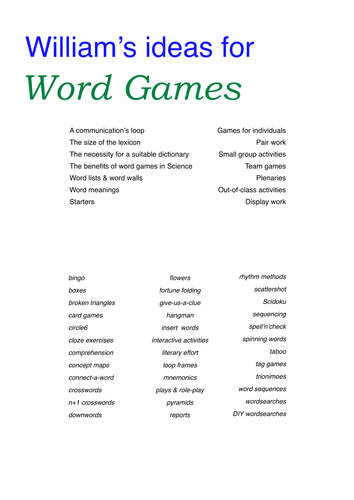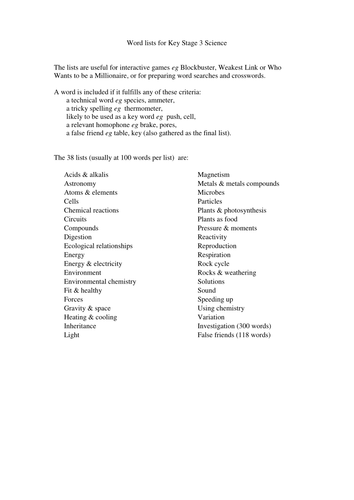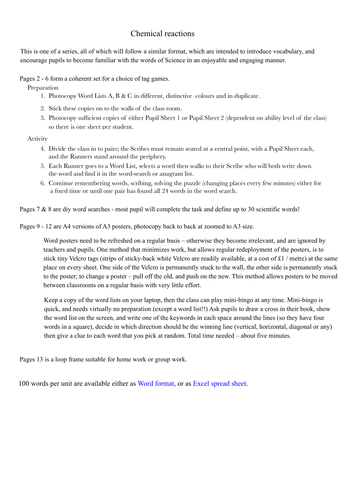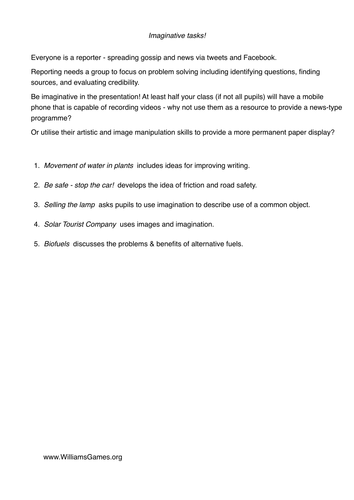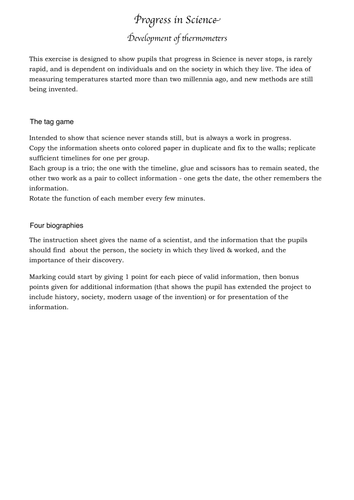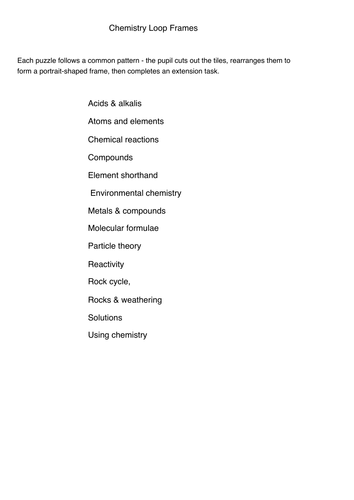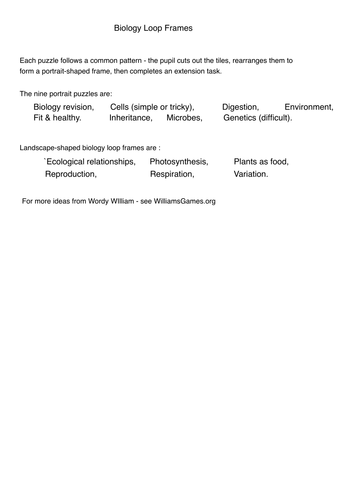Wordy William's Shop
The biggest barrier to pupils' enjoyment of Science? The language. Simple fact - pupils need to learn more subject-specific words at KS3 Science than are needed when taking GCSE French. The majority of these resources are aimed at familiarising pupils with the arcane lexicon of Science using engaging word games.


